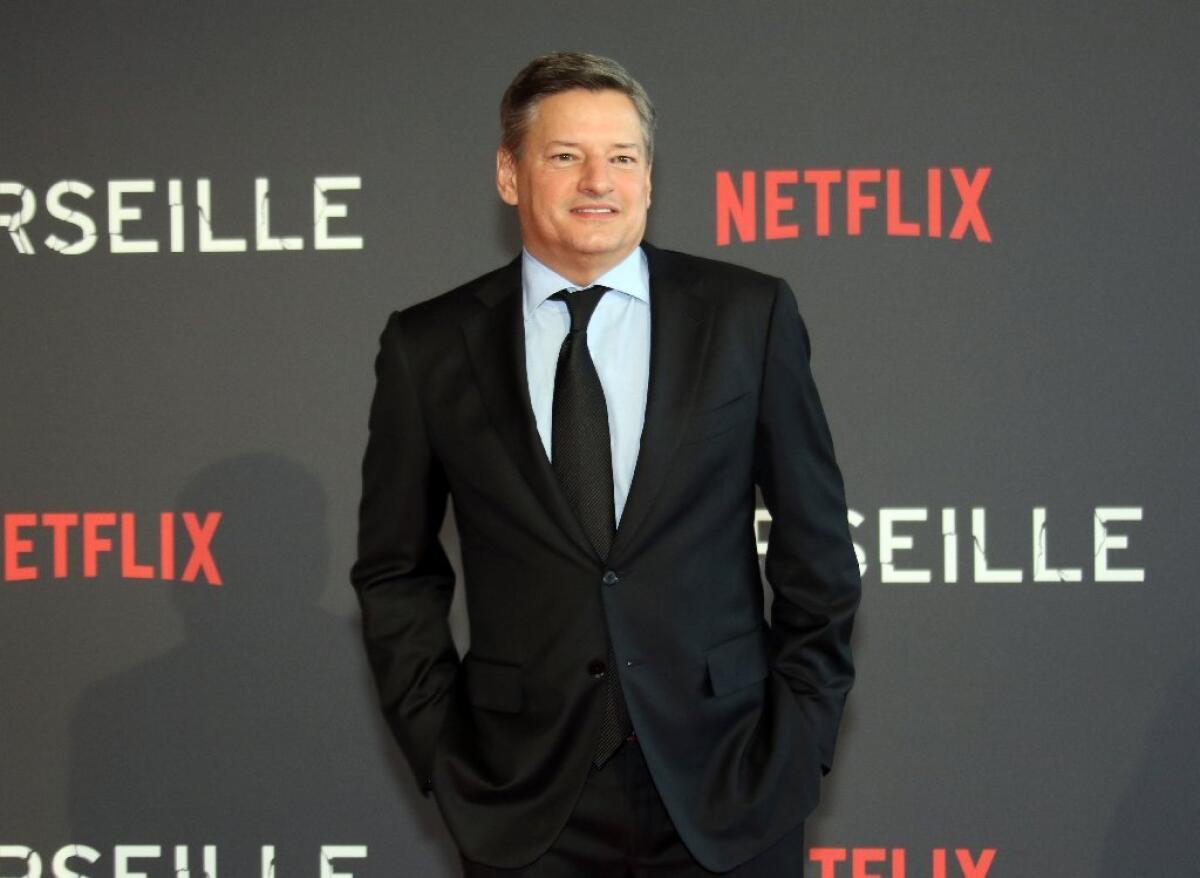Netflixâs Ted Sarandos on how his âdisruptiveâ methods are ensuring the future of film
Netflix Chief Content Officer Ted Sarandos has a vision for the future of movies â and not surprisingly, streaming is at the heart of it. As Netflix continues its aggressive push into the movie business -- bringing A-listers like Will Smith, Brad Pitt and Angelina Jolie on board the streaming bandwagon and spending big money to acquire films at festivals like Sundance and Cannes -- Sarandos lays out his ideas for how the Internet can save Hollywood.
As this disruptive new force in the movie business, streaming services like Netflix are either the white knights or the enemy, depending on whom you ask.
Thatâs fascinating to me. We have no desire to disrupt the movie business for the sake of disruption â or to preserve it for the sake of nostalgia. What we want to do is evolve it so itâs a better experience for filmmakers and a better experience for consumers.
What do you say to those who argue that if movies are treated as just another piece of content to be streamed online, they will lose what makes them special?
When people say we want to protect things and keep them special, that just means keep them small and unhealthy. I think movies are special because of how well theyâre crafted, how well theyâre acted and shot â not because of the room that you saw them in first. Every director that I talk to that talks about the romance of cinema talks about the movies they saw on VHS tape when they were growing up.
This gets spun around a lot that weâre somehow anti-theaters. Iâm totally not. You are much more likely to find me at a movie theater Saturday night than most executives who are having this debate. I love the experience, and I think by preserving film â the economics of film â you will preserve that experience as well, and you will keep films relevant in the culture.
Thereâs an idea that the streaming model lends itself best to smaller, more intimate movies. Netflix recently signed a major deal to produce a cop thriller called âBrightâ directed by David Ayer and starring Will Smith. Are you looking to move into bigger projects like that?
âBrightâ is ambitious and very global. Itâs a great script, a great star and a very accomplished director. And weâre going to bring it to fans exactly when they want it, which is when they hear of it. Whatever the theatrical component is, itâs going to be concurrent with the Netflix window, because I donât believe itâs sensible to hold back 81 million people from watching a movie so that a couple of hundred people can see it in a theater.
Thereâs lots of direct-to-video movies â this is not that. Thereâs a bunch of made-for-TV movies â this is not that. The movies that Bong Joon-ho is making for us in Korea right now or that Angelina Jolie is directing in Cambodia or that Brad Pitt just did, âWar Machineâ â these are really ambitious films that spook studios, that in the old model would just be very difficult to make.
The studios gave up on a lot of films that viewers did not. Weâre looking to fill that gap.

As Hollywood focuses more and more on giant tentpole movies, how do you help keep smaller films relevant?
Peopleâs tastes are remarkably diverse â thereâs an audience for everything. But the trade radius of any individual theater is so small sometimes that you donât have enough people to have enough fans to support the economics of even a $12 ticket.
What we offer is an infinite trade radius. Thereâs millions of John Sayles fans, but the problem is theyâre dispersed around the world. We can pull those fans together, and using the algorithms we use to merchandise a film, we can make that film as prominent to the person who loves John Sayles as âCaptain America.â
When âBeasts of No Nationâ failed to get any Oscar nods, some people took it as a sign that Oscar voters saw it as somehow not a real movie because it simultaneously streamed on Netflix. Do you think there was a bias against it?
Maybe Iâm just an optimist, but I donât think thatâs true. âStraight Outta Comptonâ was probably the best movie last year, and it got the most traditional release youâve ever seen and it barely was recognized by the academy. âBeasts of No Nationâ was recognized by the Screen Actors Guild, the Independent Spirit Awards, the BAFTAs, the Golden Globes â it just didnât get an Oscar nomination. Iâm giving the academy voters more credit than to think it was just a vendetta against a distribution point.
The burden of that is on us. We have to make the movie that is so good you canât ignore it.
How far do your ambitions go in the movie business? Do you envision a future in which Netflix is essentially another major studio with all that implies: a lot with big soundstages, long-standing production deals with talent and so on?
I have no objections to doing the old stuff that works. Some parts of that system work really well. Giving proven and dependable creators a creative home I think can work very well.
The more our original initiative expands, more and more of it will come under a studio-type umbrella and weâll build out the production expertise to support these projects more and more. But you donât have to own all of that. The things that are outsourceable we should be outsourcing. We donât need to run a lumber mill to make content.
More to Read
Only good movies
Get the Indie Focus newsletter, Mark Olsen's weekly guide to the world of cinema.
You may occasionally receive promotional content from the Los Angeles Times.











